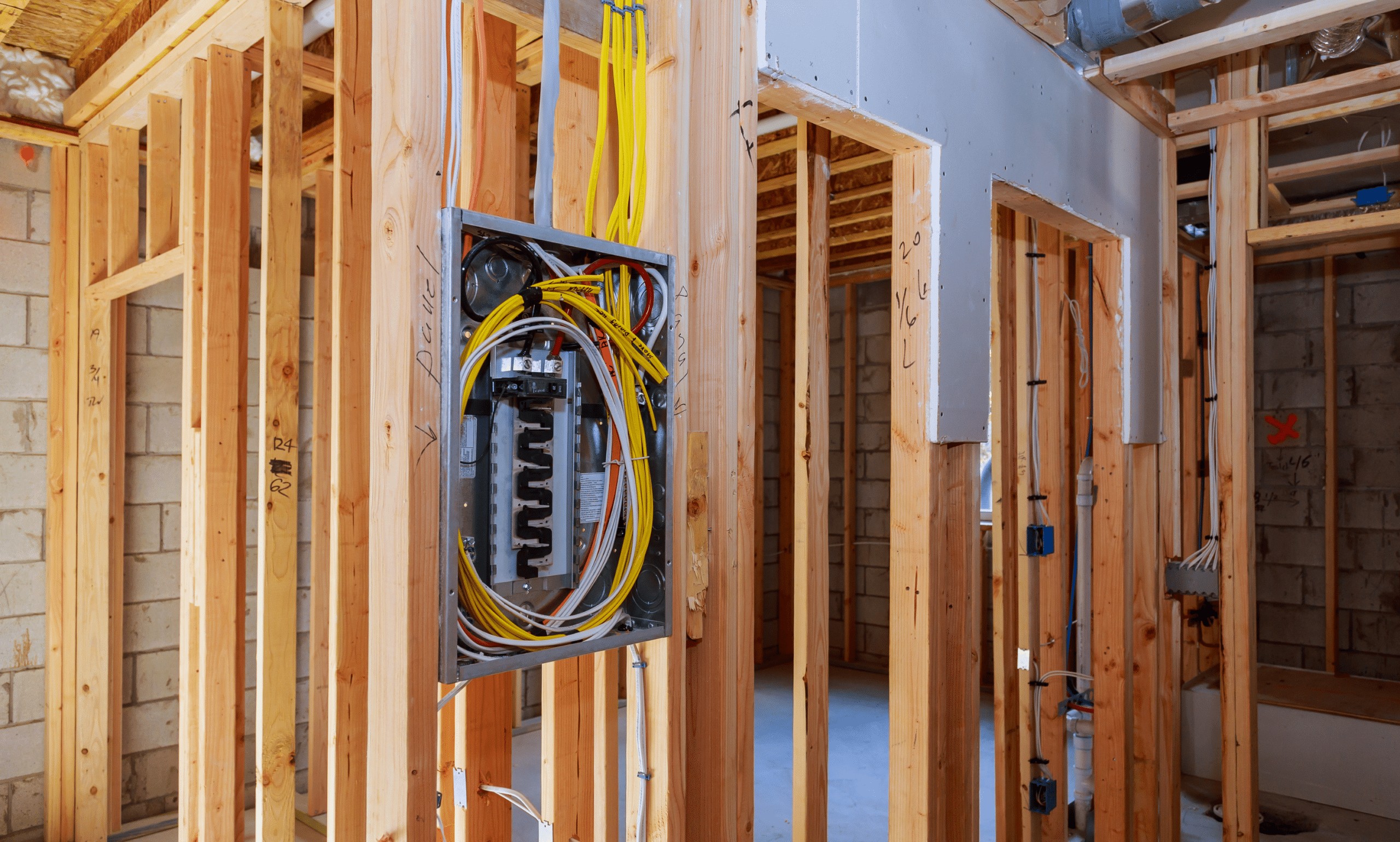
Renovating or rewiring your home is a significant undertaking that requires careful planning and implementation. Rewiring a home with outdated or even underwired systems will ensure the safety and peace of mind of yourself and your loved ones. The older your electrical wiring is, the more hazardous it can be. So before diving into this project, here are five main things to consider before rewiring an old home.
- Your Budget
It is critical to develop a budget that works with your household so you and your electrical contractor have a clear understanding of what you can afford. The cost of rewiring depends on the size of the house, the amount of rewiring needed, and whether you’re upgrading electrical panels. Not skimping on wiring materials is essential, as quality materials will provide a longer-lasting outcome. Often homeowners attempt to rewire their houses by themselves, and we recommend hiring an electrical contractor. Just make sure you set that budget!
- The Severity of the Problem
Older homes often need updated electrical wiring. However, not all of it may be outdated and need replacement. Here are some signs you need an electrical upgrade:
- The Age of your wiring matters. When was the house built? Are the electrical fuse boxes old? Is everything up to code? The older the home, the more critical it is to rewire your house.
- Aluminum wiring is a serious issue and is an electrical fire waiting to happen. In recent code books, aluminum wiring needs a switch and junction box, a specific safety installation where each outlet is.
- Scorch marks are another severe issue that needs to be dealt with immediately. Electrical switches and outlets should always remain cool to the touch, so if any of them feel hot or have scorch marks around the area, contact a professional electrician immediately.
- If you have tripping circuit breakers, updating your wiring system is a good idea.
- The Timeframe Process
When looking into electrical system upgrades, it is important to consider how long the process will take and unexpected costs that may pop up. The older the house, the more time and money it may cost. The process is also necessary to remember because if you have a family at home and it is a severe case, it may take a couple of days or even weeks to get everything up to date and 100% up to safety standards. During this time, your electrical supply will need to be turned off, so you may need to find a place to hang out during the day.
- Permits and Regulations
You or your hired electrician must check local building codes and regulations. Depending on the extent of the electrical renovation, you might need to obtain a city permit before the work begins. If extensive renovations are continued without the proper permits, you fail to comply with regulations, which could cause delays or significant fines. Fines that were not accounted for in your budget!
- Preparing a Solid Plan
Preparing a solid plan with your electrical contractor will help you stick to your initial budget and allow you to devise a prioritized list of what needs to be started first. A specific graphed-out plan room by room will enable the project to stick to completion timelines. The more each room is planned, the more organized your project will be. Solid plans will also allow the electrical contractor to make suggestions for future-proofing the house. Looking ahead will save a significant amount of money.
Now that you have an idea of the top considerations of electrical renovation tips, it’s time to investigate yours for outdated wiring! Hiring an electrical contractor is a good idea because the licensed professionals are up to date with code compliance. Call Piper Electric today for an electrical inspection!
